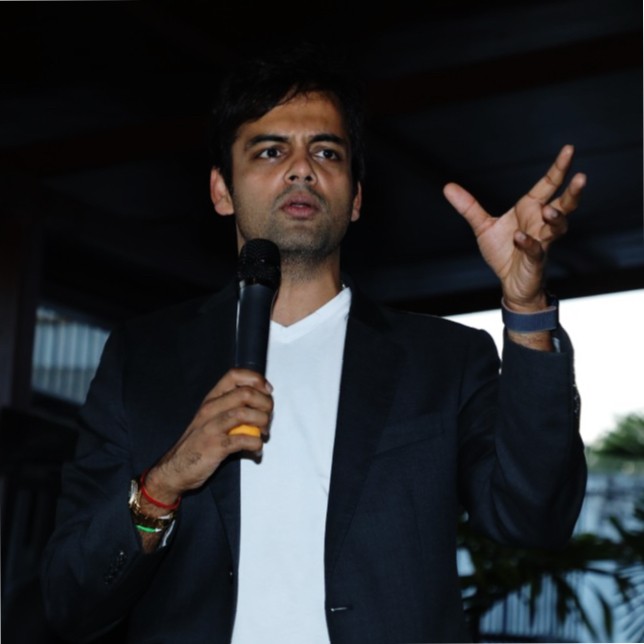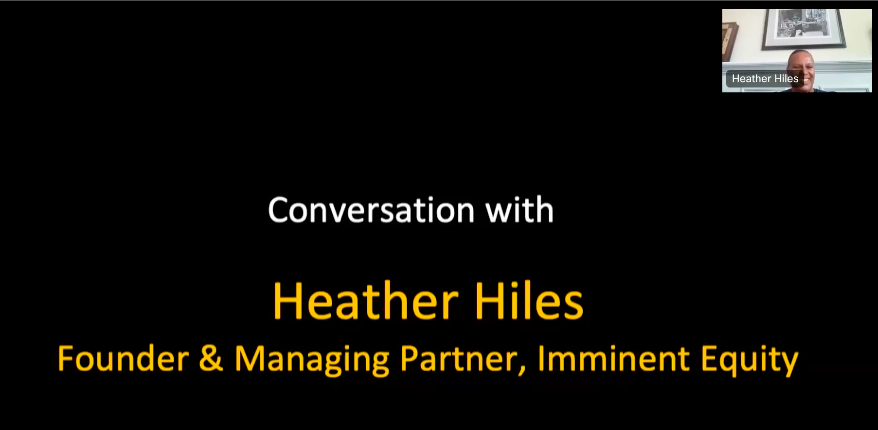Seed Capital
1Mby1M Virtual Accelerator Investor Forum: With Anirudh Damani, Managing Partner at Artha Venture Fund (Part 5)
Sramana Mitra: Those examples that you gave of a B2C venture out of India that is doing global business, how common is that across your portfolio?
Anirudh Damani: One out of five businesses on the B2C side is either looking overseas or getting inbound interest from overseas.
Sramana Mitra: Is that primarily in EdTech? Is there a category trend?
>>>1Mby1M Virtual Accelerator Investor Forum: With Anirudh Damani, Managing Partner at Artha Venture Fund (Part 4)
Sramana Mitra: You have made 27 investments. Let’s talk about some of the Artha case studies.
Anirudh Damani: We could look at HobSpace. All 27 deals we have done were referred to us. We’re getting so much deal flow these days that it’s very difficult for my team to keep up even with the best ERPs and systems we are using. We’ve added a filter where for every investment we do, we only take a look at a deck if it’s referred by somebody on our network.
>>>1Mby1M Virtual Accelerator Investor Forum: With Anirudh Damani, Managing Partner at Artha Venture Fund (Part 3)
Anirudh Damani: I used to be on the road for probably 25 days a month. I’ve lived in a lot of Motel 6’s across the US. I understand the value and effort it took to standardize that experience across the board. When I was looking at the deal, I could understand what he was doing. Much of my staff was having tough experiences, especially females. We would get them a business hotel, but it would be right next to a shady area. A similar hotel in Bangalore with a similar price point would be a fantastic hotel.
>>>1Mby1M Virtual Accelerator Investor Forum: With Anirudh Damani, Managing Partner at Artha Venture Fund (Part 2)
Sramana Mitra: Is your portfolio all India-born companies?
Anirudh Damani: Out of the 27 we’ve done from the fund, 26 are domiciled in India. One is domiciled in the US but it’s primarily an Indian business selling to the world. In terms of sales, 25% of our portfolio sales happen outside the country, but most of the companies are based in India.
Sramana Mitra: I assume the B2B SaaS strategy is global SaaS companies.
>>>1Mby1M Virtual Accelerator Investor Forum: With Anirudh Damani, Managing Partner at Artha Venture Fund (Part 1)

Anirudh Damani is the Managing Partner at Artha Venture Fund. We have a terrific discussion on the Indian Startup Ecosystem and its trends.
Sramana Mitra: Let’s get you acquainted with the audience. Tell us a bit about Artha and your background.
Anirudh Damani: I have had a very interesting journey to becoming a venture capitalist. I started out as a door-to-door salesman in Texas. During my first seven months at the job, I knocked on a hundred doors a day. I was responsible for selling long-term energy power contracts to homeowners in West Texas.
>>>592nd 1Mby1M Entrepreneurship Podcast with Heather Hiles, Imminent Equity
Heather Hiles is Founder and Managing Partner at Imminent Equity, and a pioneering entrepreneur in the Black community. Heather also has deep experience in financing Black entrepreneurs, as well as on the education side to close knowledge gaps at scale.
Podcast: Play in new window | Download
Subscribe: Apple Podcasts | Android | Google Play | Stitcher | TuneIn | RSS
592nd Roundtable Recording with Heather Hiles, Imminent Equity
In case you missed it, you can listen to the recording of this roundtable here:
Roundtable Recap: October 6 – Spotlight on Black Entrepreneurs

During this week’s roundtable, we had as our guest Heather Hiles, Founder and Managing Partner at Imminent Equity, and a pioneering entrepreneur in the Black community. Heather also has deep experience in financing Black entrepreneurs, as well as on the education side to close knowledge gaps at scale.
Block Transfer
As for our entrepreneur pitches, first we had John Wooten from Atlanta, Georgia, pitch Block Transfer, a peer-to-peer stock trading platform.
StyleAStar
Then Victoria Christopher from Nigeria pitched StyleAStar, a B-to-C Customized Fashion business.
You can listen to the recording of this roundtable here:
